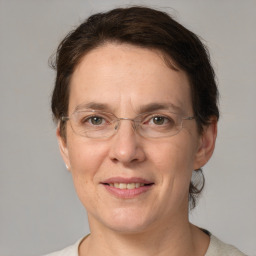Somaglia
Welcome to Somaglia: a municipality of history, culture, and nature
Somaglia, also known as Sumaia in the Lodigiano dialect, is a municipality located in Lombardy with a population of approximately 3,825 inhabitants. The city has a unique history, having been aggregated with other localities during the Napoleonic era and later becoming autonomous after the constitution of the Lombardo-Veneto Kingdom. In this article, we will use a friendly tone to tell the history, monuments and places of interest, society, administration, infrastructure and transportation, sports, and more about Somaglia.
The history of Somaglia
During the Napoleonic era, the Municipality of Somaglia was aggregated with the localities of Mirabello (Senna Lodigiana) and Regina Fittarezza, which subsequently became autonomous after the constitution of the Lombardo-Veneto Kingdom. In 1873, Regina Fittarezza was again aggregated to the municipality along with Cascina Pizzolano.

Symbols
The coat of arms and flag of Somaglia were granted by decree of the President of the Republic in 1953.
Monuments and places of interest
The Church of the Assumption of the Blessed Virgin Mary, whose construction began on October 14, 1769, and whose consecration took place on December 31, 1773, is a beautiful example of neoclassical architecture. The Milanese architect Giulio Galieri designed its square plan. The Cavazzi Castle, dating back to the fifteenth century, was donated in 1980 by Baroness Guendalina Cavazzi to the city of Somaglia and is used for various events. The "Mario Borsa" Museum, inaugurated in 2012 and dedicated to the life and works of the artist, collects documents, works, and personal objects of the painter. The Monticchie S.I.C. Oriented Nature Reserve, a nature reserve of 240 hectares, of which 24 are under maximum protection, is located on an ancient river bend of the Po River.
The Society of Somaglia
The population of Somaglia has steadily grown in recent years. As of January 1, 2019, foreigners residing in Somaglia with a valid residence permit were 502, or approximately 13.1% of the population. The most represented nationalities are Romania, Morocco, India, Albania, Egypt, and North Macedonia.
Anthropogenic Geography
The municipal territory of Somaglia includes the capital and the geographic fraction of San Martino Pizzolano.
The administration of Somaglia
The local administrations of Somaglia have succeeded each other over the years. This Municipality can count on a series of public services, including the post office, the Carabinieri station, the kindergarten, and the elementary school.
Infrastructure and Transportation
The city is crossed by the state road 9 Via Emilia, which connects Piacenza to San Donato Milanese, in the metropolitan city of Milan. Somaglia is also crossed by the A1 motorway, although it does not have any exit for the municipality. However, there is a service area called "Somaglia Ovest" located about 3 kilometers from the exit for Casalpusterlengo/Ospedaletto Lodigiano towards Bologna.
Sports in Somaglia
In Somaglia, there are two football teams: the Sanmartinese Pizzolano Sports Union, founded in 1969 and playing in the Second Category championship, and the Somaglia Sports Union, founded in 1972 and also playing in the Second Category championship. The social colors of both teams are white and red for the first and green and white for the second. The stadium of the Sanmartinese Pizzolano Sports Union is the Armando Picchi in San Martino Pizzolano, while that of the Somaglia Sports Union is the Municipal Stadium of Somaglia.
Conclusions
Somaglia is a city that offers an interesting combination of history, culture, nature, sports, and public services. From ancient monuments to natural landscapes, passing through the two exciting football teams, Somaglia is a city to be visited for a different and unforgettable experience.
